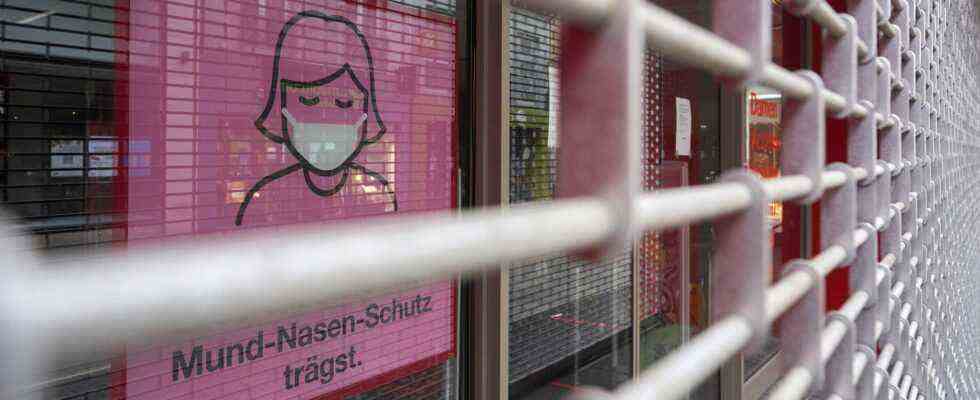Status: 01/24/2022 04:52 a.m
The federal and state governments are still sticking to the corona measures. But in view of the usually milder courses in the Omicron variant, politicians from the CSU and FDP are calling for them to start thinking about a possible end to the restrictions.
Despite the rapidly increasing number of corona infections, politicians from the FDP and CSU in particular are demanding a plan for future relaxation of the protective measures from the federal and state leaders advising today.
CSU regional group leader Alexander Dobrindt told the “Welt” that he expected a clever strategy from the round of prime ministers with Chancellor Olaf Scholz to “move out of the pandemic step by step”. The status of the pandemic will change with Omikron. “That’s why the assessment standards must also be adjusted. It is important to recognize and take account of the effects of fatigue in society.”
In view of the usually mild course of an omicron infection, the central benchmark cannot be the incidence, said Dobrindt. “The central question must be: How burdened is the health system?” This question must be the basis “for all federal and state decisions,” he said.
Relaxation also required for major events
Federal Minister of Justice Marco Buschmann said in the ARD-Program “Anne Will”, when the peak of the omicron wave expected for mid-February has passed and the numbers in the hospitals have also fallen, the measures would have to be relaxed. This is self-evident.
The head of the state parliamentary group of his home association North Rhine-Westphalia, Christof Rasche, went even further and demanded easing at major events and that the 2G regulation in retail and 2G plus in restaurants be abolished. He pointed out that courts in some states have already overturned 2G in stores. “We have to enable more normality in the short term.”
The German Association of Towns and Municipalities had previously asked the federal and state governments to develop a step-by-step corona relaxation plan. “An exit strategy must be prepared now,” said managing director Gerd Landsberg of the editorial network Germany (RND) on Sunday. “In the neighboring countries, we can see that the pandemic will have reached its peak at some point and then the numbers will drop again drastically and quickly.”
Lauterbach wants to talk about opening perspectives
In a draft resolution for the federal-state consultations on Monday, it says: “The federal and state governments will develop opening perspectives for the moment when an overload of the health system can be ruled out.” At the same time, it is said that there is “agreement that the rules in force so far will continue to apply”.
Federal Minister of Health Karl Lauterbach spoke out in favor of talking about possible opening perspectives today. “If the number of cases goes down again, and that is to be expected when we are over this wave, then of course the restrictions cannot remain,” said the SPD politician on the ZDF program “Berlin direkt”. Then openings would be possible step by step. “It’s right to consider that now.”
The chairman of the conference of prime ministers, North Rhine-Westphalia’s head of state Hendrik Wüst, pointed out the sharp increase in the number of infections on RTL and n-tv. “The core message is now: no loosening!” But: “Everything we do must always be proportionate. We always have to check whether the measures are still necessary, whether they fit, whether they really help to protect people’s life and limb. But that applies to everyone Measures.”
The federal-state group wants to stay the course
Chancellor Scholz and the heads of government of the federal states will discuss the corona situation again in the afternoon. The omicron variant of the corona virus spreads “very quickly” and can lead to “a large number of hospital admissions”, according to the draft resolution on Sunday evening. The federal and state governments therefore agreed “that the previous course will be continued and the applicable measures will be consistently continued”.
North Rhine-Westphalia’s SPD parliamentary group leader Thomas Kutschaty welcomed the intention of the federal-state group not to change anything in the existing measures at first. “Currently there is no room for easing or tightening,” he told the dpa news agency. “I expect that we will continue to act with a sense of proportion in the pandemic policy and not come to hasty conclusions that we might soon regret.”
The proposal for a resolution refers to new infections of more than 100,000 cases a day and the latest assessment by the Federal Government’s Expert Council. According to this, the seven-day incidence per 100,000 inhabitants for new infections in the region could soon “reach several thousand”.

